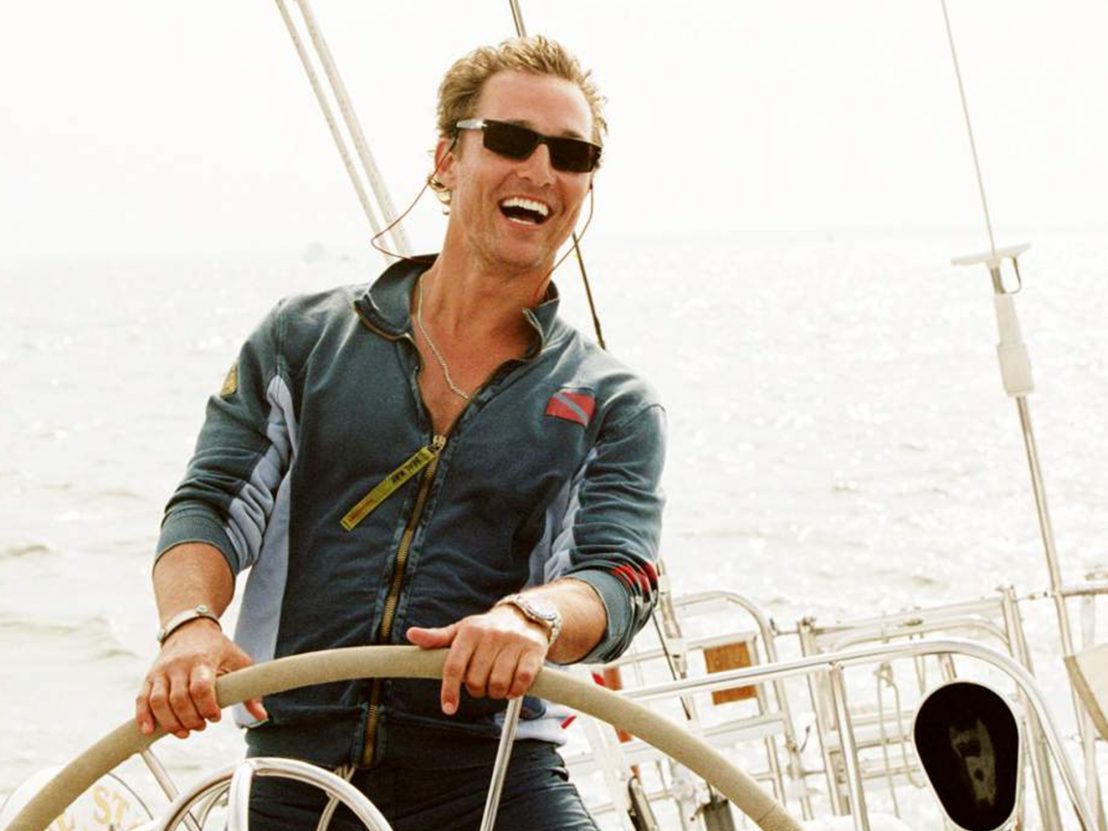
One of the few perks of self-identifying as a journalist is that you can be part of a clique who are allowed to refer to a film actor as a journeyman hack. To broaden the definition, this is an artist who sees their participation in the rhinestone-studded Hollywood production line as a means to a very specific end. And that end involves being paid ungodly amounts of fast cash in return for participating in some crass, demographic-oriented “product” intended to be pushed out at local multiplexes like so much meat slurry into so many all-natural hot dog casings.
Adam Sandler is perhaps the preeminent example of this phenomenon. He is a man whose robust business acumen has seen him top-lining films which are purpose built to trouble that exclusive club of zero percenters on Rotten Tomatoes. (I’ll note, this indistinct consensus take in no way means they are bad movies.) These early works offered indistinct variations on Sandler’s patented ‘dribbling dicksplash’ persona and became a staple of tween sleepovers, university dorm smoke-outs and the rec rooms in maximum security prisons.
Yet the already-murky waters are putrified further when an actor like Sandler decides to stick it to the fans and lay one down for prosperity – he punches out a film for The Art. As unspoken penance for such garden variety atrocities as Anger Management, 50 First Dates and Click, we get a Punch-Drunk Love or a The Meyerowitz Stories to even up the scales. It’s Netflix algorithm fillers on the streets, the Safdie brother’s Uncut Gems in the sheets.
Where Sandler dropped the occasional shit-flecked pearl into the funky swill of his screen career, Matthew McConaughey has adopted a slightly different tack. His formative years, which for the sake of this study will cover the tainted decade stretching from 1999’s Edtv to 2009’s Ghosts of Girlfriends Past, gave way to a sharp watershed, denoted by the strange moment he clearly decided he’d been coasting for too long. It was time to act, goddammit.
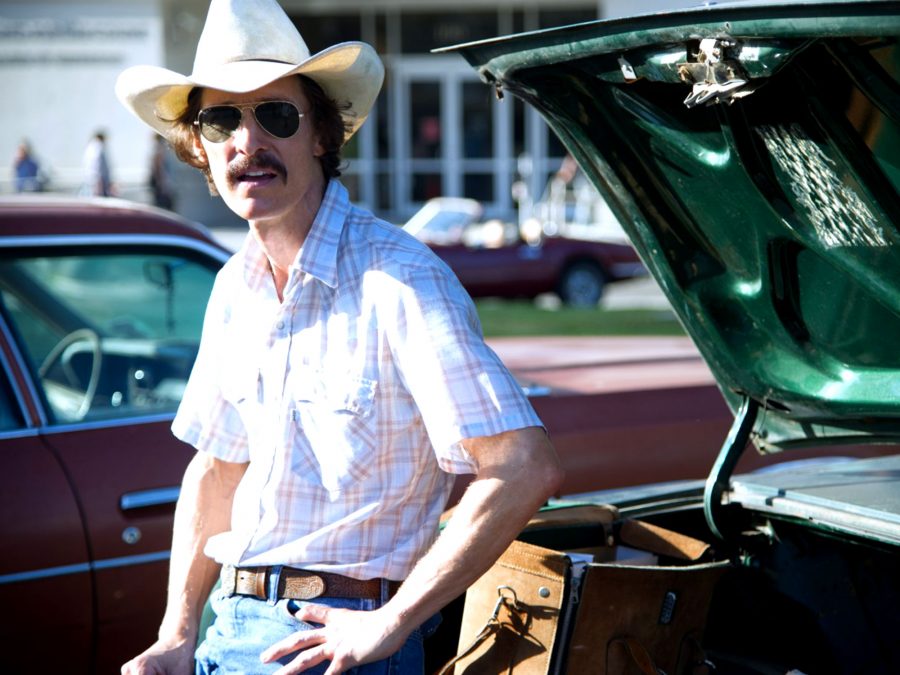
2011’s The Lincoln Lawyer can be identified as a key transition point in McConaughey’s career, a particularly satisfying example of a film in which the mere presence of an actor enhances a hackneyed concept (he’s a lawyer, in a Lincoln). At the time, he was well aware that he was slumping towards typecast. He was being habitually referred to as a “himbo” in the gutter press. Offers of more interesting roles were seldom forthcoming. He took a time out in a bid to refresh his image. And from there on in, it was awards (Dallas Buyers Club), plaudits (Mud), censor-baiting (Killer Joe) and protracted crying sequences (Interstellar).
For innocent onlookers, it was a struggle to see who could consign a large swathe of McConaughey’s working life to the cultural garbage barge of history the fastest. And lo, the McConnaisance was born…
This is the necessary context for the story I want to tell, which is one that floats the lightly controversial notion that McConaughhey’s so-called “fuck you, pay me” phase was in fact a greater signifier of his strengths as a performer than the films made after that allegedly misbegotten era. The Texas Tornado’s aura of twinkle-toothed chill has been the constant factor in everything he’s made. He neither stretches himself to meet the material, nor takes off-kilter character roles which would involve him shifting too far from essentially playing a fictional clone of himself.
He is modern cinema’s foremost pit master, the garrulous life and soul who also shoulders much of the responsibility of ensuring the party rips major ass. With shortish legs and an immense torso, he has a low centre of gravity which allows him to glide into the frame, often with head tipped forward like an inquisitive hound dog. It is a dancer’s physique, and his performance style often relies on matching words with improvised movement.
He works with the rhythm of a script as much as he does its content. And the essence of what he is able to bring to a project is visible in everything he makes, whether that’s an airplane seat-back workhorse such as 2001’s The Wedding Planner, or a 2016 ‘based on true events’ drama like Gold.

If The Lincoln Lawyer was the transition, then what was the breaking point? The answer to that is obviously 2008’s gong-bonging jerk chimera Surfer, Dude. It’s often referred to as a ‘lost’ movie, but the reality is that it’s your classic hush-up job. McConaughey essays a dim-brained, cash-poor surfer who freaks out when he is asked by a shady businessman to contribute to a surfer VR experience.
The film looks like it was made as some kind of creative money laundering exercise, particularly as director SR Binder manages somehow to avoid making even a single shot look like it was created by someone who has even light aspirations towards basic integrity. It is an example of mis-fired self parody as McConaughey, referencing a trait he had become known for, literally spends the entire film shirtless.
At best it appears as if he doesn’t find the joke that amusing, at worst he acts as if a rifle is being pointed at his head from behind the camera. But this is an obvious professional nadir, a solid reason to not only fire an agent, but to have him clapped in irons and pelted with rancid fruit for an entire financial quarter.
Ron Howard’s Edtv is what you’d refer to as a standing start when it comes to a dash toward the Hollywood A-list. It’s also a vital text in the McConaughey saga, in that it tells of a lovable southern schlub who is plucked from obscurity and whose natural magnetism is tested as a star attraction on low-rent cable TV. On those terms the film is believable, as you could totally imagine that toothsome grin, those perky gesticulations, that unkempt shag carpet of chin-bristle, to work in this ultimate everyman context.
The problem is – and this something we’ll need to return to again and again – the film itself is absolutely awful. Without even mentioning that it sits cowering in the shadow of the better-in-every-conceivable-way The Truman Show from the previous year, Edtv is film which has no curiosity about its fascinating subject, using the immersive proto reality television concept as a way to string together a bunch of sappy, soapy encounters. Where Edtv the show is a major hit all across America, Edtv the film crashed and burned, and deservedly so.
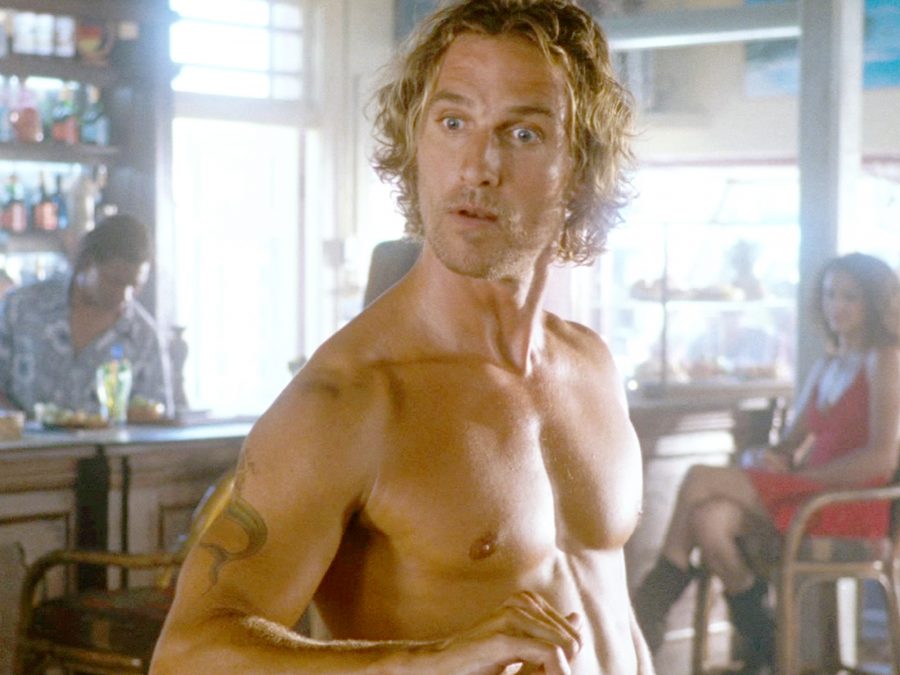
Another example of a film which can be seen as art imitating life is 2006’s underrated Failure to Launch, in which he co-stars opposite a very game Sarah Jessica Parker. It sees McConaughey playing – you guessed it – an avuncular man-child who is still living with his parents, and SJP is drafted in as a specialist in coaxing this dashing commitment-phobe out from of mamma’s box room.
Overlooking the fact that the entire film is conceived around a plot hole that’s visible from one of Saturn’s further-flung moons, McConaughey lavishes proceedings with an easygoing affability that single-handedly defibrillates a lifeless and wantonly contrived script. Yet this notion of McConaughey putting away childish things to realise his full potential is a question that would hang on the lips of critics for a further half decade.
Winding back a few years to the McConaughey rom-com locus point, we come to The Wedding Planner. Our subject is utterly convincing as a chiselled, mildly eccentric dandy whose temporary unattainability makes him all the more desirable. A palpable attempt is being made to present another string to the actor’s possibly limited bow, as his bewitching paediatrician who is, unfortunately, due to wed a well-heeled slattern is clean shaven and sports preppy rimless glasses.
This is a Jennifer Lopez vehicle, and so he delivers his most sedate and unembellished performance from the relative sidelines. He is, in fact, far more intriguing and charming in the electronic press kit video produced to promote the film, in which he sincerely expounds on the notion of love at first sight as if this film offers its most sublime example in the entire history of art.
Later, McConaughey relished the opportunity to work opposite Al Pacino in Two for the Money – two actors deeply versed in the art of splenetic gibberish (“Bada-bam-boo-ba-bam!”, “Ta-ta-ta!”, etc). And yet again, he was the saving grace in a film which desiccates under close scrutiny, concerning an injured pro footballer who retrains as a sports betting tipster and – for reasons never really explored – is initially very good at it, and then for no reason at all, loses his touch.
The pair go from high-fiving jackals to flop-sweat covered goons, and it’s yet another example of a good, committed performance in a bad movie. It works on a primal level because McConaughey is phenomenal at mimicking confidence. You believe that, until this point in his career, he’s been working as a betting tipster. And that humane connection to the background is a rare skill.
You’d be hard pressed to defend 2008’s Fool’s Gold, a Bahamas-set caper comedy in which our boy teams with Kate Hudson to foil a Glock-waving Kevin Hart in the race to a mythical sunken treasure. Imagine if Spielberg had made a new Indiana Jones film, but also attempted to tie it on to a heavily discounted family sun holiday, and you’re almost there.
There’s a svelte, lived-in quality to McConaughey’s freelance antiquity hunter – seeing the assurance with which he handles a jet ski harks back to images of John Wayne cantering atop his trusty steed. He even makes a comically lengthy historical exposition sequence in the middle of the film feel semi vital. Action movies are something of a under-explored cavern in his career – Sahara and Reign of Fire are actually both rather good, particularly his bug-eyed, mohawked marine in the latter.
To recap, McConaughey has been admirable-to-good-to-occasionally great in various pieces of Hollywood paycheque fluff. The McConnaisance came, and then with a shocking quickness, died a death, as the actor starred in a long list of crushingly mediocre titles which didn’t allow his carefree schtick into frame. Things got off to an exciting start with William Friedkin’s Killer Joe, in which our man sexually assaults a woman using fried chicken, and not for the purpose of thigh-slapping guffaws. And his extended cameo in Steven Soderbergh’s Magic Mike was an absolute gift – taking what he had already done to death, and just encasing it in a more satisfying and cogent context.
Then came the dark days: Gus Van Sant’s horribly misjudged suicide drama The Sea of Trees from 2015 may have seemed like a good idea on paper, but it only served to crud up our star’s CV in this period of attempted transition. The Free State of Jones, Gold, The Dark Tower, White Boy Rick, Serenity… a depressing gallery of middling dreck which not only placed a garish full stop at the end of the so-called McConnaisance, but forced us to question whether there even was one in the first place.
His most recent spotlight role is in Harmony Korine’s The Beach Bum, in which he plays a fun-loving Floridian beat poet who porks, snorts and smokes his way to infamy. The film looks to both concentrate and expand upon his singular screen persona. Guy Ritchie has cast McConaughey as an American drug lord in his vaunted return to mockney gangster terrain, The Gentleman, which is due out in 2020.
It seems that very few directors have the power to harness what this singular leading man has to offer, and maybe we could see him slink back to his rom-com old ways as we tip into the next decade. If you have ever thought of McConaughey as a “journeyman hack”, then the insult should apply to his entire career, not just the early years. There has been no flux, only good performances in bad films (Surfer, Dude being the exception). McConaughey will always be big. It’s the pictures that were small.
Published 7 Apr 2019
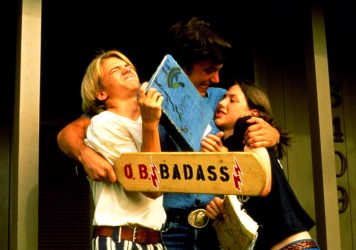
Richard Linklater’s seminal high school movie is the ultimate endorsement of living in the moment.
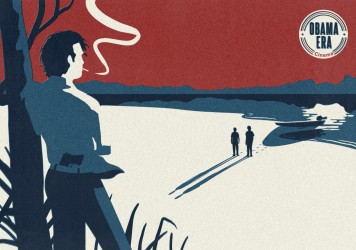
Each of the Arkansas director’s films addresses pressing social concerns affecting working-class white voters.

He’s taking it nice and easy in Harmony Korine’s follow-up to Spring Breakers.